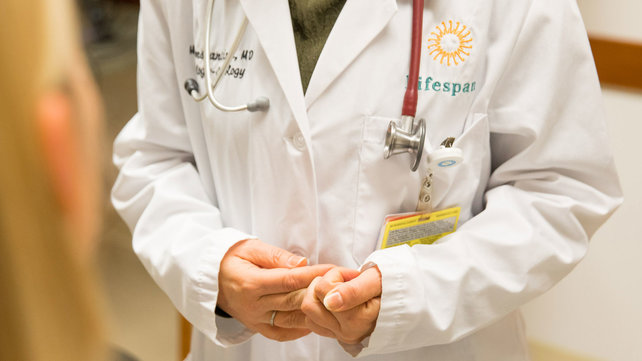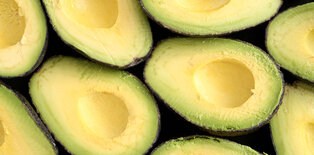Sober Curious and the Benefits of Taking a Break from Alcohol

Drinking alcohol in any amounts—yes, even in moderation—can negatively impact your health. Yet there's a strong social aspect to drinking that's hard to ignore, especially among younger people. However, new research studies, along with a rise in "sober curious" influencers on social media, indicate that more and more people are considering the benefits of abstaining altogether, or more mindfully engaging in alcohol culture.
What is "sober curious"?
The idea of being "sober curious" is not really new. The concept of "Dry January," when people pledge to abstain from drinking for the month of January, following the holidays and any excessive celebrating, may be the first time the idea had a name. Generally speaking, someone who is sober curious is reconsidering their relationship with alcohol—taking a look at why, when, and how often they drink.
Why are people sober curious?
Being sober curious is about reflecting on what impact alcohol has on your life. This reflection process can take different forms. Some people may choose to give up drinking entirely for a specific amount of time (such as the month of January, or "Sober October"), or they may choose to reduce the quantity of drinks consumed in a given time frame (say, drinking two beers a week instead of four or five) or opting for lower-alcohol options. Some use it as a way to be more creative in their downtime, either looking up or creating mocktail recipes to try or seeking out new ways to engage with friends that aren't centered around a bar. Whatever the reasons for taking a break from alcohol, studies have shown there are a great deal of benefits.
What are some benefits from taking a break from drinking?
There are numerous benefits of abstaining from alcohol, even if it's just for a period of time—the longer the break, the better.
Better sleep
Numerous studies have researched the ways in which alcohol disrupts our sleeping patterns. Generally, while alcohol can have a sedative effect at first, helping you fall asleep, it typically results in poor quality of sleep. Participants in Dry January or other temporary sober periods noticed an increase in their quality of sleep.
Reduced risk of certain cancers
According to the CDC, all forms of alcohol are linked to increased risks of certain cancers, including colorectal and breast cancers. A small study published in the British Journal of Medicine showed a remarkable reduction in cancer-related markers in participants who refrained from drinking alcohol for one month.
Better mental health
Turning to alcohol when we're stressed or upset is considered normal or understandable, but alcohol can actually make your mental health worse—and taking a break from alcohol has the opposite effect. In one study, researchers found that participants reported less depression and improved mental health after giving up drinking for six months.
Lower risk of liver disease and insulin resistance
The impact that alcohol can have on the liver is well known, but even taking a brief pause can help improve your liver's health. A researcher from the University College London found that after one Dry January, liver damage was reduced more than 12 percent. That study also found that resistance to insulin—a precursor to type 2 diabetes—came down 28 percent.
Fewer "cringe" moments
Anyone who has ever had one too many drinks likely has had a regrettable social moment. One study of college students reported that 66 percent had regrets after a night of drinking--but even more than just regretting saying something you didn't mean to say or being late to a class or your job, drinkers tend to engage in higher-risk behaviors, including driving while impaired or engaging in unwanted sexual acts.
More money in your wallet
Aside from the obvious health benefits of abstaining from alcohol, taking a break from drinking can help you save money. One survey of over 1,000 participants found that on average, some people spend $300 per month on alcohol.
How to take a break from alcohol
If you're feeling sober curious, you're not alone. And that's one of the things that can make a break from alcohol a success! Finding a buddy, or even a sober social group, can help you feel like you're engaging in your social circle without feeling pressured to drink. Make a plan outlining the details of your sober period, such as whether you'll abstain entirely or be more moderate in your drinking in a specific way (for example, "I'll only have one drink when I'm out on Friday nights") and how long you want your break or your mindful drinking journey to be. Keeping a journal, or even notes in your phone's note app, can help you reflect on what you discover along the way and track how you feel.
How to get help with alcohol addiction
For some people, taking a break from alcohol is not a big deal. For others, trying to take a break from alcohol may lead them to recognize that drinking has a stronger hold on their day-to-day life than they realized. Seeking help for alcohol addiction or any substance abuse disorder can feel challenging, but there are many resources to help you.
The Substance Abuse and Mental Health Services Administration has a 24/7 National Helpline, with services in English and Spanish, that can help with referrals to local treatment centers, support groups, and community-based organizations. You can also call or text 988 nationwide to connect with local support systems.
In Rhode Island, the Substance Use Disorders Treatment program at Gateway Healthcare offers a variety of treatment options for adults and adolescents. For information on their programs, please call 401-729-8701.
About the Author:
Brown University Health Blog Team
The Brown University Health Blog Team is working to provide you with timely and pertinent information that will help keep you and your family happy and healthy.
Find a Doctor

The right provider is in our network
Search more than 1,200 providers in our network.



